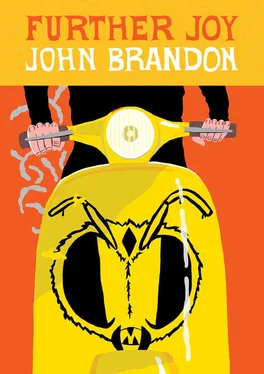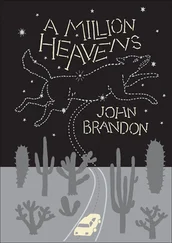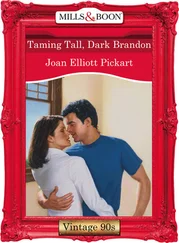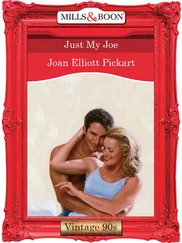John Brandon - Further Joy
Здесь есть возможность читать онлайн «John Brandon - Further Joy» весь текст электронной книги совершенно бесплатно (целиком полную версию без сокращений). В некоторых случаях можно слушать аудио, скачать через торрент в формате fb2 и присутствует краткое содержание. Год выпуска: 2014, Издательство: McSweeney's, Жанр: Современная проза, на английском языке. Описание произведения, (предисловие) а так же отзывы посетителей доступны на портале библиотеки ЛибКат.
- Название:Further Joy
- Автор:
- Издательство:McSweeney's
- Жанр:
- Год:2014
- ISBN:нет данных
- Рейтинг книги:5 / 5. Голосов: 1
-
Избранное:Добавить в избранное
- Отзывы:
-
Ваша оценка:
- 100
- 1
- 2
- 3
- 4
- 5
Further Joy: краткое содержание, описание и аннотация
Предлагаем к чтению аннотацию, описание, краткое содержание или предисловие (зависит от того, что написал сам автор книги «Further Joy»). Если вы не нашли необходимую информацию о книге — напишите в комментариях, мы постараемся отыскать её.
The New York Times
Further Joy — читать онлайн бесплатно полную книгу (весь текст) целиком
Ниже представлен текст книги, разбитый по страницам. Система сохранения места последней прочитанной страницы, позволяет с удобством читать онлайн бесплатно книгу «Further Joy», без необходимости каждый раз заново искать на чём Вы остановились. Поставьте закладку, и сможете в любой момент перейти на страницу, на которой закончили чтение.
Интервал:
Закладка:
Marky went to his scooter, making a show of sidestepping the area where Nelson had buried the avocado pit. He fired up his little chopper and hopped on and rolled over the weeds and onto the road. He got up to speed, motoring around a gradual curve through a cloud of pollen. Marky was advancing with reserved dignity through this little moment, but he saw the big picture. He knew that the hurdles before him were petty, that the troubles behind him held no sway.
*First LP or EP in which instrument appears will feature photography by Hurley Simms in cover art.
FURTHER JOY
One girl locked her bedroom door after soccer games — the lost breath and slick tanned limbs, the push of opposition, the spiked shoes. One girl came within a week of perfect attendance and then to avoid recognition for the feat stayed home from school doing nothing, a bit lonesome, nibbling pastries and watching old high school movies full of outdated, luxurious clichés. One of the girls’ fathers owned a fast food joint that did wine pairings. One of the girls’ fathers did not trust his documents in the trash, even if shredded, and he saved them all up and conducted a backyard fire every few months, no matter how torrid the weather. The neighbors would complain but by the time someone from the county appeared the fire would be all but over, the sky hazed with secret finances. A few of the girls enjoyed the zoo, but they didn’t go there together. The zoo required a bus ride. The zoo was a place to be alone and not feel lonely. The girls did not imagine themselves old like their fathers; they imagined themselves as young adults in unknown gray cities, wearing coats that swallowed them up and coats snug to their figures, living in spare apartments nestled unknown distances above unknown streets. They imagined young men in loosened ties, with shy smiles and excellent manners. One of the girls locked her bedroom door after long days at the beach — the smell of the oil, the baking limbs, the bare feet. The girls had what they considered a common-sense policy regarding marijuana: they would not purchase it, but would accept it for free from people they knew, and only if another of the girls was present. The girls were fifteen. They lived in the middle-class section of a town known for wealth, and went to a brand-new high school where nothing was decided. The girls knew that their soccer coach was gay and resolved to keep his secret. He wore sunglasses and polo shirts like every other guy and spoke slowly and without accent like every other guy, but the girls knew. There was no charge when he touched their shoulders, no slight tension. At the end of practice when they got down to sports bras and chugged near the water cooler, spilling down their fronts, he could look at them with casual eyes and they felt no need to pose. One of the girls’ fathers worked at a nuclear power plant in the next county, and every morning he was out of the house before the girl awoke. The girls had little preference where they went to college. They would move away from home, but were not in a big rush about it. The girls hated to be asked what their talents were, their interests and strong points. The girls had at one time or another boycotted espresso, celebrity perfumes, movies that involved outer space, the Internet, the classics of literature, bikinis, appetizers, music featuring electric guitars. One of the girls’ fathers owned a restaurant named 6TABLE that served six parties per night, Thursday through Sunday. For a time, this girl had waited tables. One evening a lady had raised her voice at the girl and the girl’s father had thrown the lady out. Like most of the customers, the lady was rich and bored and so after being thrown out she had dedicated herself to making trouble for the restaurant. Reviews soured, the health inspector appeared repeatedly, an annual gala turned elsewhere for its catering needs. Eventually, and not because her father asked her to, the girl wrote a letter apologizing to the lady, and then showed up at her home and apologized in person. It was hard to know what to apologize for, but the girl managed, leaning on the dictum that the customer was always right. Boredom was the woman’s problem, the girl knew, not wealth. The poor grew bored too and labored at evil. None of the girls would ever run for a student government office. They didn’t despise student government as some did, but the idea of losing an election was sobering. They were thought of as free spirits and could do most anything, most anything — they couldn’t run for treasurer and lose. They couldn’t run for vice president of the student council and draw posters and distribute lollipops and give speeches and then fail to win the election without also somehow losing prestige in the eyes of the rest of the school. One of the girls, cold turkey, stopped locking her bedroom door. She wanted to save up the thrill, bottle it. She didn’t know if it worked this way, but maybe it did. One of the girls had once hated her freckles, and now was proud of them. She relished sitting under her parasol at the beach. It was glamorous, not being tan. It was original. She wore black; she blushed and bruised. The girls’ fathers had stopped giving them actual gifts on their birthdays. Instead, each father would take his daughter and all the other girls to dinner. The girls missed the wrapped physical objects. They missed imagining their fathers wracking their brains, bumbling from store to store asking advice. The girls sometimes stayed up all Friday night making bracelets and then sold the bracelets the next day at the Saturday market. They were often given a stand next to a bunch of country boys who sold jerky. The boys were from out in the swamps but were not poor or stupid. They were cocky in a way that was fun rather than despicable. The girls could hardly understand their accents but they could talk about anything — hot rod engines, the local tax system, cities in Australia. If these boys pressed hard enough they could get somewhere with the girls, but they didn’t press. These boys took it as it came. Returning home from the market, the girls would find themselves full of a diffuse yet pulsing frustration. Their fathers, the girls noticed, never entered the girls’ bedrooms. The girls would come up the hallway and catch their fathers peering in, looking skeptical yet fascinated, like nonbelievers peeking into a dim cathedral. One of the girls had been marginally fondled by a shoe salesman. No more than three or four years separated the girl and the shoe salesman, yet he’d been a different element. He had veined forearms and jaw muscles and an accent that didn’t come from the swamps but from some other lesser place. He’d been talking to her but then he stopped. Something lifeless and determined came into his eyes. The girl was the only customer in the store; she had gotten her hair done that day, and had gotten a pedicure. The shoe salesman had taken her bare feet in his hands in a way that was gentle but certain. The shoes sat in their box, impartial. He touched only her ankles and toes, at first, looking into her eyes, knowing all he needed back from her was nothing. And she gave it — a flat look, a look not only empty of protest but as determined as his. They felt like someone else’s feet, to her; they felt like part of a beautiful woman who would never run out of stunts to pull. He let one of his hands wander quick to her hip and then the other hand caught up slowly, tracing its way up the skin of her other leg. When he had an equal grip, dug in close to the bone, the girl could feel very definitely that she was being possessed. When his fingertips ventured under the elastic of her underwear, she heard herself gasp. A bony, pinch-faced old lady came in then, toting a pert baggie that probably contained new sunglasses. The girl knew that if her father ever found out, he would hurt the shoe salesman. The shoe salesman was basically a man, but not like her father was a man. The girl would never have been able to explain to her father that nothing had really happened, and that if anything had it was only because she’d wanted it to. That wouldn’t have been important. Each girl already appreciated her father. Each girl appreciated that her father was soft-spoken on the sidelines of soccer fields, that her father allowed her to try anything she wanted and allowed her to quit those things if she wanted to try something else. The very land, the streets of the neighborhood the girls lived in, possessed a flatness that often felt more than merely topographical. The girls recognized their home terrain instantly in photographs and movies. This literal lack of relief added an air of invincibility to the diffuse and pulsing frustration the girls often fell prey to.
Читать дальшеИнтервал:
Закладка:
Похожие книги на «Further Joy»
Представляем Вашему вниманию похожие книги на «Further Joy» списком для выбора. Мы отобрали схожую по названию и смыслу литературу в надежде предоставить читателям больше вариантов отыскать новые, интересные, ещё непрочитанные произведения.
Обсуждение, отзывы о книге «Further Joy» и просто собственные мнения читателей. Оставьте ваши комментарии, напишите, что Вы думаете о произведении, его смысле или главных героях. Укажите что конкретно понравилось, а что нет, и почему Вы так считаете.












